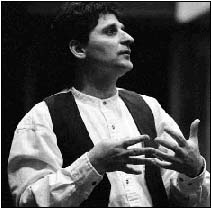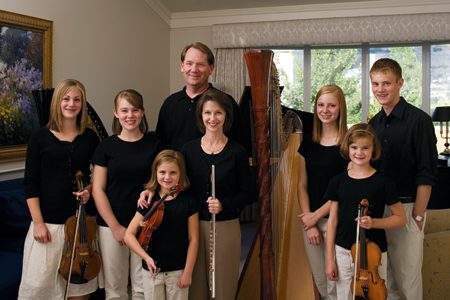The mission of BYU’s School of Music is simple, explains Kory L. Katseanes, school director and Director of Orchestras: “We seek truth in great music.” But some concertgoers may struggle to appreciate orchestral music. To help, Katseanes offers advice about finding enjoyment and truth in this centuries-old art.
Q: What are your favorite orchestral pieces?
This is a tough question. Beethoven’s Ninth Symphony is undeniably the greatest—it changed the world. One composer who means a great deal to me is Shostakovich. His Fifth Symphony, to me, is one of the most profound pieces. The swan theme of Sibelius’s Fifth Symphony just punches every button that I have. Sibelius is trying to describe, in music, the most profound experience he ever had in nature: watching 16 swans take off together from a river. In the start of the last movement we hear them taking off, and then it launches into a beautiful theme.
Q: How can a first-time concertgoer prepare for the experience?
Be willing to experience something new. Do some research on the composers and pieces beforehand, and arrive ten minutes early to read the program notes. And bring a date—these things are meant to be shared and discussed.
Q: How can you get the most from an orchestra concert?
Some people say that they just don’t understand orchestral music. But you don’t have to—if you just sit and listen, you will hear something that touches you. Get in touch with your feelings, and music will be a direct voice to you. Watch the performers; they will tell you how to feel. Also, notice the language of musical expression—dynamics. Sometimes you have to lean forward to hear the music, and sometimes it will blow you back in your seat. Those moments create emotions. Beyond that, listen for melodies. The power of melodies is that they get stuck in your head—that’s why people have favorite pieces.
Web: Find more of Katseanes’s orchestral picks and listen to them at magazine.byu.edu/orchestra.









